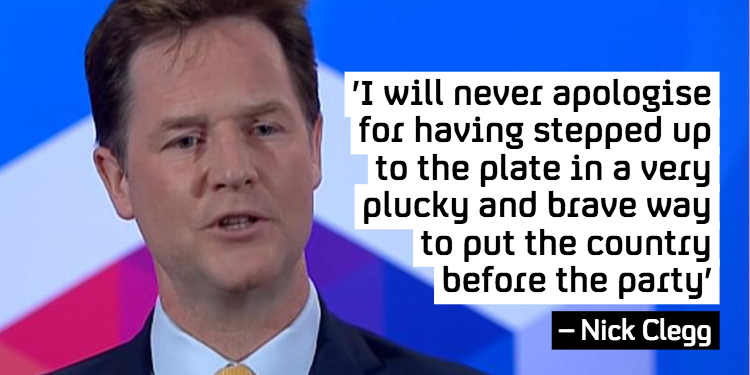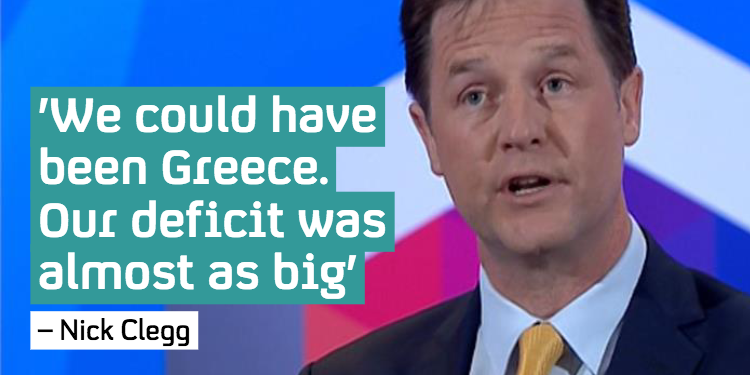Nick Clegg: The largest party should “make the first move” but there are other options if that doesn’t work out
Nick Clegg has got his yellow tie on, he’s gone back to his roots it seems.
Unsurprisingly the first question is on tuition fees. He says he “was between a rock and a hard place on that particular policy” and he says sorry, as he has said before.
It’s going to be difficult for Nick Clegg here. He has to present himself as separate from Ed Miliband but also David Cameron too – but so many of his recent decision will be tarred with the influence of Mr Cameron.
Oh those heady days of “I agree with Nick.”
Unsurprisingly, again, Clegg is being attacked for his colleague Danny Alexander leaking a government document. Why should we trust his party if they do that, the audience asks.
It’s a good question – leaking government documents later doesn’t bode well for the future coalitions.
New job?
Audience member: “Have you got another job for after next week for when you lose your seat and your party becomes an irrelevance.”
Nick Clegg: “Charming. No I don’t”
Ouch.

Foodbanks
He says it is foodbanks that have inspired his “yellow card” system on welfare sanctions – he says that he wants a system in place that will give
the big question: people who voted for you, like me, did not expect you to put David Cameron in number 10.
Coalition with only the largest party… unless that doesn’t work out of course
Nick Clegg says that there is a “little matter of democracy”. He says he runs a party who gets 8 per cent of the seats and he is not the boss, but the Conservatives got a majority.
Like Ed Miliband he also likes David Cameron’s darkened room comment – “if either of them thinks they are still going to get a majority they need to lie down in a darkened room”.

Nick Clegg says whatever happens the party who gets the most votes gets to “make the first move”.
But really interestingly he says that if that doesn’t “work out” then other options may have to be worked on. A bit of a contradiction there as his whole justification of joining the Tories was that they were the largest party – or as he puts it, the “little matter of democracy”.

